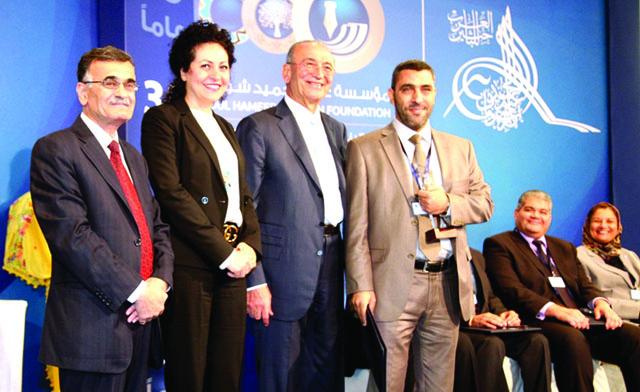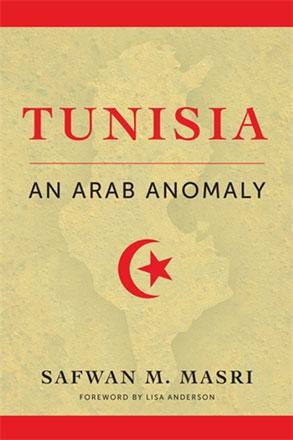You are here
Linking academia with the public sphere
By Sally Bland - May 29,2016 - Last updated at May 29,2016
Social Sciences in the Arab World: Forms of Presence
Mohammed Bamyeh
Beirut: The Arab Council for the Social Sciences, 2015
Pp. 142
Social sciences, whether history, economics, political science, sociology, anthropology, psychology or other branches, are pivotal to understanding and furthering the development of society. Yet, all too often—with the exception of economics, they are accorded less importance than the “hard” sciences and technology-related fields. This report, the first by the Arab Social Science Monitor, aims to assess the status and trajectory of the social sciences in the Arab world, in hopes of inspiring some rethinking that will expand their contribution to society.
The Arab Social Science Monitor is a project undertaken by the Beirut-based Arab Council for the Social Sciences (ACSS). As Seteney Shami, ACSS director, writes in the preface, “The waves of unrest, conflict and war that characterise the region in the present moment makes this rethinking of trends, needs and priorities more, rather than less, important.” (p. 3)
The result of an extensive survey, the report documents the presence of the social sciences in universities, research centres, professional societies, civil society and the media, including scholarly and cultural periodicals, newspapers, television and popular magazines. It also attempts to gage the extent to which scientific thought is present in public life overall. While concluding that there has been quantitative and qualitative development in recent years, the report notes “a significant untapped potential for the social sciences in the Arab world… due to institutional fragmentation, lack of encouragement for research activities, political restrictions on them, the weakness of the Arab academic intellectual community, the bureaucratic inflexibility of Arab universities, and other factors”. (p. 15)
What makes the report especially interesting and potentially impactful is its interdisciplinary approach and the fact that it breaks out of academia to assess the social sciences’ links to the public sphere. It considers interdisciplinary fields such as gender, urban and cultural studies, as well as the usual branches of social sciences.
Universities are critiqued on both these criteria. Rather than viewing social sciences only as a teaching subject, universities need to invigorate their research component and civic role. Also addressed is the predominance of the modernity discourse in academic social sciences, for this ignores historical memory and social traditions, causing a disconnect with society and leaving those fields to less qualified players.
Research centres, on the other hand, more often adopt an interdisciplinary approach and address topics that have current relevance for society. “As such, these research centres pave the way for the social sciences to focus on research activities oriented towards different groups, ranging from decision makers, to civil society, to the learned communities, and to partisan and political structures, or other segments that have participatory interests.” (p. 41)
The Monitor’s survey of five influential civil society organisations in different Arab countries reveals that “all civil society organisations not only employ, but actually produce social sciences in one way or another, albeit in various forms calibrated to their objectives”. (p. 81)
Forging organic links between the social sciences and civil society would help embed scientific thinking in public debates. This, in turn, would foster democracy, help solve political, social and economic problems that resist simple solutions, and meet the “increasing momentum of demands for participation, which have recently taken the form of revolution and all-out uprisings”. (p. 78)
Mohammed Bamyeh, who undertook to write up the Monitor’s findings in this report, is rigorous in presenting the methodology and conclusions of the survey. Excellent, lucid tables and graphs reinforce the text. To a great extent, the report avoids making sweeping generalisations, instead comparing and contrasting how social sciences are present from one Arab country to the next, one university to another, one research centre to another, one publication to another and so on.
This report should be of great interest to social scientists across the Arab world, as well as to civil society organisations, social activists and committed intellectuals who believe that scientific thinking is a prerequisite for human development and social change.
Although this review is based on the English edition of the report, there is also an Arabic edition. Further information can be found on the website: www.theacss.org.
Related Articles
The winners of the 32nd Abdul Hameed Shoman Award for Arab Researchers in 2013 were honoured on Tuesday.
AMMAN — Jordanian researcher Mias Al Rimawi has won the first prize of the Union of Arab Universities for the distinguished Arab researcher
Tunisia: An Arab AnomalySafwan M. MasriNew York: Columbia University Press, 2017Pp.


















